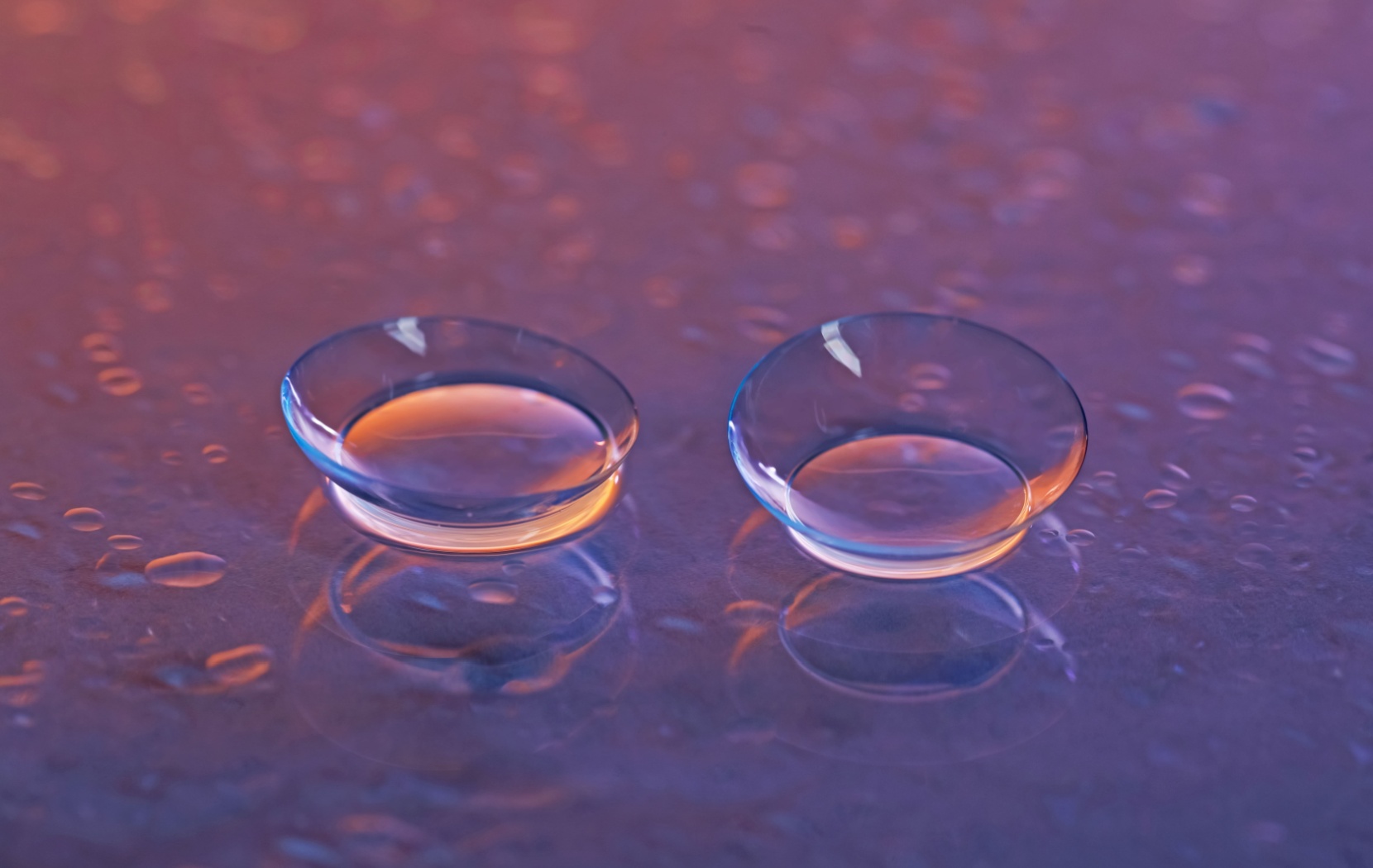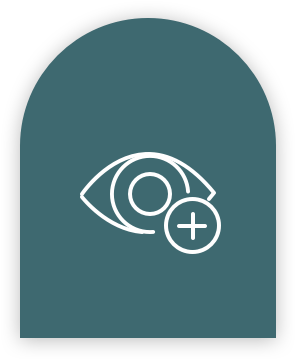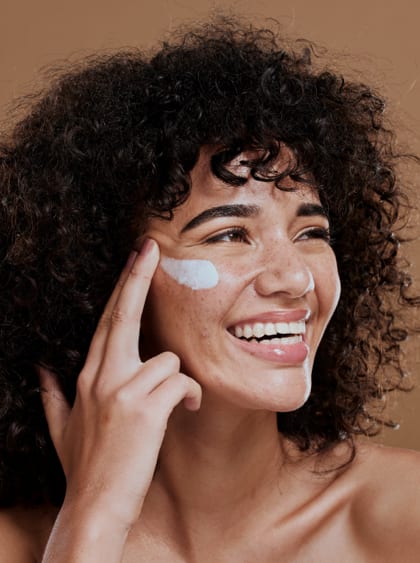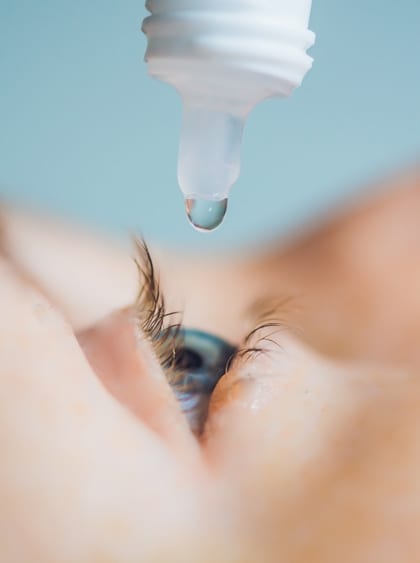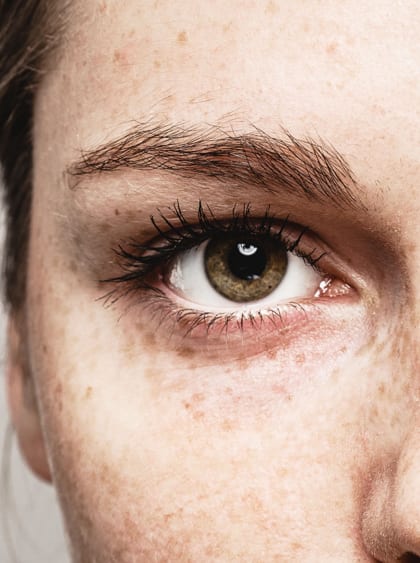Contact lenses offer freedom from glasses, providing clearer peripheral vision and convenience for active lifestyles. Yet for those experiencing dry eyes, contacts can sometimes feel like a double-edged sword. The persistent irritation, grittiness, and discomfort can make wearing lenses challenging.
But your contacts are important to you; how can you keep them comfortable? It comes down to a few essential habits: following your prescription precisely, keeping your lenses pristine, drinking enough water and using hydrating eye drops, and allowing your eyes to rest often.
Understanding Dry Eye Disease
Dry eye disease occurs when your tears fail to provide adequate lubrication for your eyes. This happens either because you don’t produce enough tears or because your tears evaporate too quickly due to an unstable tear film.
Common symptoms include:
- Stinging or burning sensations
- Stringy mucus around the eyes
- Light sensitivity
- Eye redness and irritation
- Blurred vision or eye fatigue
- A gritty feeling, as if something is in your eye
Several factors can contribute to dry eyes, including aging, hormonal changes, environmental conditions, certain medications, and underlying health conditions. Understanding the underlying cause of your dry eyes is the first step toward finding effective solutions.
How Contact Lenses Affect Dry Eyes
Contact lenses can worsen dry eye symptoms in several ways. When placed on the eye’s surface, they disrupt the natural tear film and can increase tear evaporation. Some lens materials may also absorb moisture from your eyes, leaving them feeling drier than usual.
This explains why many people experience increased discomfort with their lenses as the day progresses. The longer you wear them, the more your natural tear film becomes compromised.
However, advances in contact lens technology have led to designs specifically aimed at reducing dryness and improving comfort for those with dry eyes.
Can You Still Wear Contacts with Dry Eyes?
Absolutely. Having dry eyes doesn’t mean you need to abandon contact lenses entirely. The key is working with your eye care professional to find the right approach for your specific situation.
A thorough assessment by your optometrist will help determine the best lens options and treatment strategies for your dry eyes. This might include recommending specific eye drops, adjusting your wearing schedule, or switching to a different type of lens material.
Choosing the Best Contact Lenses for Dry Eyes
Not all contact lenses are created equal when it comes to dry eye management. Several options are specifically designed to enhance moisture retention and comfort:
Daily Disposable Lenses
These single-use lenses minimize protein deposits and allergens that can irritate dry eyes. Since you start with a fresh pair each day, there’s no buildup of allergens and irritants that could worsen your symptoms. These are the lenses of preference at MEye Health especially with the added pollution from the forest fires.
Silicone Hydrogel Lenses
These advanced materials allow more oxygen to reach your eyes, which can help reduce dryness and maintain healthier eyes throughout the day.
Moisture-Enhanced Lenses
Some lenses come with built-in wetting agents or moisture-retaining properties that help keep them comfortable for longer periods.
Your optometrist can recommend the best lens type based on your specific dry eye condition, lifestyle, and visual needs.
Maintaining Proper Contact Lens Hygiene
For those using reusable lenses, proper hygiene becomes even more critical when dealing with dry eyes. Clean lenses reduce the risk of infection and maintain comfort throughout your wearing time.
Always use the recommended cleaning solution and follow your eye care provider’s instructions precisely. Never use water, saliva, or other non-recommended liquids to clean your lenses, as these can introduce harmful bacteria or worsen dry eye symptoms.
Replace your lenses according to the prescribed schedule. Overwearing lenses can lead to protein buildup and increased irritation, particularly problematic for those with dry eyes.
Effective Dry Eye Management Strategies

Successfully managing dry eyes while wearing contacts requires a comprehensive approach:
Use Lubricating Eye Drops
Compatible rewetting drops can provide immediate relief and help maintain moisture throughout the day. Choose drops specifically designed for contact lens wearers, and use them regularly, especially during extended screen time or in dry environments.
Stay Hydrated
Drinking adequate water supports your body’s natural tear production. Aim for at least eight glasses of water daily to help maintain optimal eye moisture.
Optimize Your Environment
Use a humidifier in dry environments, particularly during the winter months when indoor heating can reduce air moisture. Position yourself away from direct airflow from fans or air conditioning units.
Practice Good Blinking Habits
Consciously blink more frequently and take more breaks, especially when using digital devices. Complete blinks help spread your natural tears evenly across the eye surface.
Consider Nutritional Support
Foods rich in omega-3 fatty acids, such as fatty fish, flaxseed, and walnuts, can support healthy tear production. Omega-3 supplements may also be beneficial if dietary intake is insufficient.
Dealing with Severe Dry Eye
Even with proper management, you may occasionally experience periods of extreme dryness that make lens removal difficult. Having a plan for these situations is essential:
Always carry preservative-free lubricating drops and use them liberally before attempting to remove your lenses. Gently massage your closed eyelids to stimulate natural tear production.
If removal remains difficult, don’t force it. Instead, apply more drops and wait a few minutes before trying again. If problems persist, contact your eye care provider for assistance rather than risking damage to your eyes.
Your Path to Comfortable Contact Lens Wear
Managing dry eyes while wearing contact lenses requires patience and the right approach, but it’s entirely achievable. By selecting appropriate lenses, maintaining proper hygiene, and implementing effective management strategies, you can enjoy clear vision without sacrificing comfort. At MEye Health, we’re committed to helping you find solutions that work for your lifestyle and vision needs. Contact us today to discuss how we can help you achieve comfortable contact lens wear while effectively managing your dry eye symptoms.


